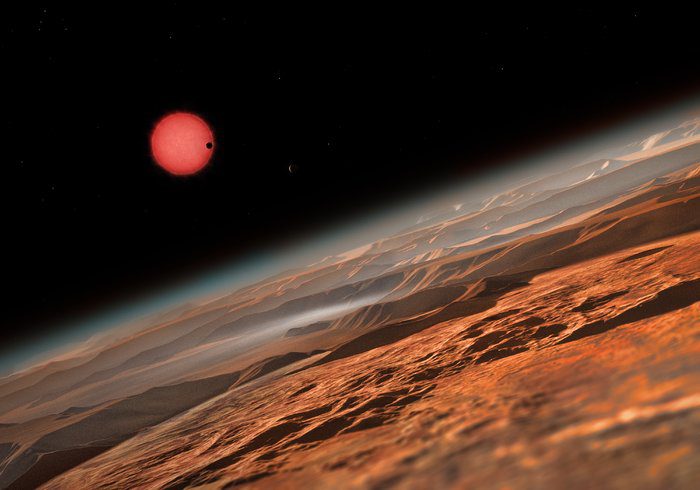
This article is interesting not only for its main assertion, expressed in its title, but for its illustration of the drawbacks of scientific “compartmentalization” and of the benefits that can accrue when scientists from divergent fields talk seriously to one another:
“Ocean-covered planets may not be the places to search for life”
Here’s an additional related and partially overlapping article:
Such research also suggests that certain forms or types of exoplanetary life might be more difficult to detect than many had previously assumed.
***
Which brings me to this intriguing item, written (incidentally) by an author with a wonderful last name and featuring the Anglo-American astrophysicist Paul Davies, whose books I’ve enjoyed for years:
“Searching for extraterrestrial life: Finding the right communication technology”
How would we distinguish a society far advanced beyond ours from a society of gods? Should we even insist on such a distinction?
***
Dang:
“Previous Evidence of Water on Mars Now Identified as Grainflows”
***
Moving on to a rather different topic, which involves gazing into the “Zone of Avoidance” (which sounds like something out of Star Trek):
“Hidden Supercluster Could Solve Milky Way Mystery”
***
It comes from beyond our Solar System!
***
And maybe life itself did, as well:
Which, of course, if true, would simply kick the can of the mysterious origins of life down the road a bit.
***
But what about “terraforming”? The concept has long intrigued me. (Is it what God or the Gods did with Earth?) Could we ourselves someday do something like it with regard to Mars? Some scientists are thinking seriously about such things:
“How to Give Mars an Atmosphere, Maybe”











